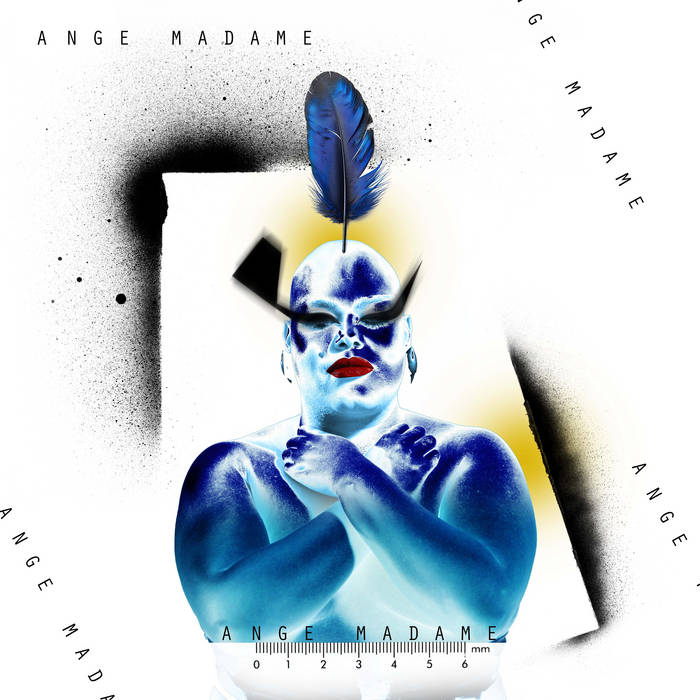With a flurry of disco strings and diva vocals, Angel-Ho unveils her alter ego, Ange Madame: a Cape Town queen and a born performer. The artist has long used tropes of the ballroom to explore queer identity and liberation on record, but with a knowingly garish sheen. Her music has a rough underworld quality, with characters reaching for luxury rather than fully living it. Back in 2020, Woman Call, shook off the dusty drum machines kicking around from the electroclash era and paired them with whatever else took her fancy: trip-hop beats, sax solos, and rap verses. That unhinged presentation lives on in Ange Madame, even as she reaches for jazz fusion and belting performances.
In this new mode, Ange Madame is overflowing with ideas. Not all of it could be contained within one record. She released the Atonal Rebel Blues Mixtape earlier this month as a teaser and counterpoint to this album. The mixtape features raw club tracks she plans to perform on tour. This material is charismatic and adventurous, but it’s also built from restraint. Bass-heavy beats are an anchor, while her voice remains cool and standoffish, often delivered more as an MC than a diva.
There is no such restraint on Ange Madame. You’ll know if it’s for you by the time she announces “and now for some scatting!” halfway through the opener, ‘Starlight’. It’s an unruly and at times testing listen, where every eccentric impulse is given in to.
Part of the difficulty lies in Ange Madame’s emulation of classic diva presentation, but without the slickness or pop sensibility you’d want. That’s to be expected for someone proudly wearing the word ‘atonal’ as a badge of honour. It’s a record that’s more likely to go down with the Xiu Xiu or Zappa crowd than the Kylie one. ‘Do You Ever’ shoots for an avant-garde version of Shirley Bassey’s balladry. With so much resting on the singing, the emotion is lost to botched vocal runs.
This dissonance affects the more straightforward pop songs. The brass-backed disco of ‘Living Colour’ can’t support the weight of the off-kilter mixing and vocals. There is a fantastic bass guitar performance and an extravagant bed of percussion, but its power is lost to overbearing presentation.
Still, there is heart and skill to be found, especially when the record goes as far left as it can. ‘Loco Machine’ is a beguiling off-world pop track, full of space and sharpness. Here, the fusion elements are carefully woven into a slow-creeping climax. Like the mixtape which preceded the album, it argues for restraint in the face of indulgence.


